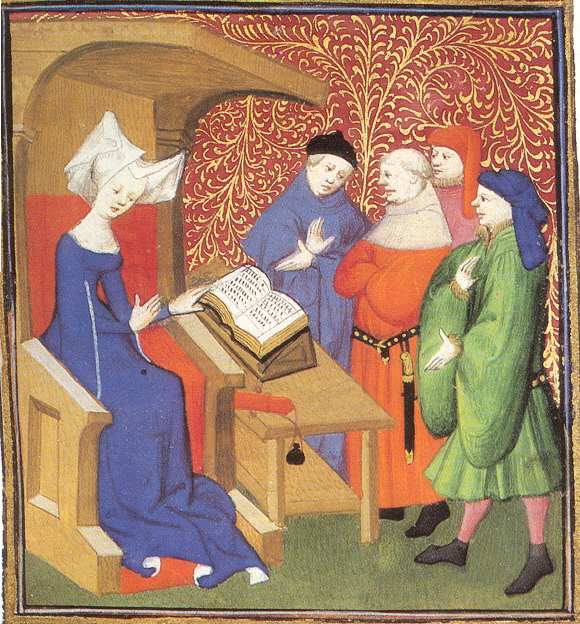The Oxford Medieval Society is pleased to announce our first event of Trinity Term 2022, a Roundtable Discussion with Professors Sara McDougall and Hannah Skoda.
We invite all interested parties to attend the event on Thursday 26th May at 13:00-14.30, in the New Seminar Room in St. John’s College. Participants will be able to ask questions and engage in discussion with Professor McDougall and Professor Skoda on a shared area of their research, Marriages, Unmarriages, and Subjectivities.
Professor Sara McDougall is Associate Professor of History at John Jay College of Criminal Justice (City University of New York) and coordinator of the Medieval Studies Certificate Program at the CUNY Graduate Center. Specialising in legal history, her research focuses primarily on women and crime in medieval France and explores topics such as gender, marriage, religion and illegitimacy. Her publications include Royal Bastards: The Birth of Illegitimacy, 800-1230 (Oxford University Press, 2017) and Bigamy and Christian Identity in Late Medieval Champagne (University of Pennsylvania Press, 2012). Professor McDougall is in Oxford this term as an Astor Visiting Lecturer.
Professor Hannah Skoda is Fellow and Tutor in Medieval History at St. John’s College, Oxford, and specialises in the cultural and social history of the later Middle Ages. She has particular interests in education, conflict, ownership, slavery and constructions of deviance in late medieval Europe. Her monograph Medieval Violence: Physical Brutality in Northern France, 1270-1330 (Oxford University Press, 2013) won the Society for Medieval Feminist Scholarship’s 2014 Best First Book Prize, in which year she was also awarded a Philip Leverhulme Prize to explore nostalgia in the fourteenth century.
Please do not hesitate to get in touch with any questions at oxfordmedievalsociety@gmail.com.
We look forward to seeing you there!



